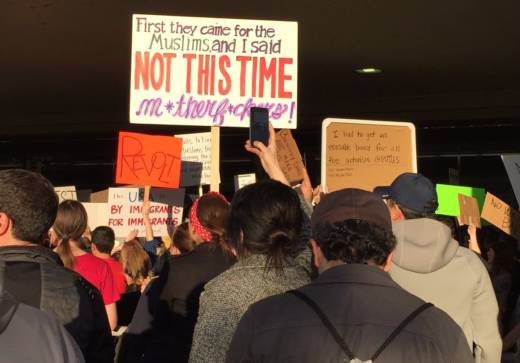Similar protests occurred at airports in Los Angeles, Chicago and New York, all places where Customs and Border Protection agents had stopped arriving passengers and, in some cases, reportedly forced them to leave the country.
Trump’s order, announced Friday, imposes a ban on refugees from all nations for 120 days and travelers from a select list of countries — Iraq, Iran, Libya, Somalia, Sudan, Syria and Yemen — for 90 days.
On Saturday evening, a federal judge in Brooklyn granted a limited stay of Trump’s order.
Judge Ann M. Donnelly ruled that forcing those snared by the abrupt travel ban would cause them “irreparable harm.” But she did not order those detained at U.S. airports freed, and it was not immediately clear whether those who had been denied entry — including many who hold Green Cards granting permanent U.S. residency — would be placed in detention.
The New York Times quoted Department of Homeland Security officials as saying Saturday evening that more than 280 people had been affected by the Trump immigration order:
Homeland Security officials said on Saturday night that 109 people who were already in transit to the United States when the order was signed were denied access; 173 were stopped before boarding planes heading to America. Eighty-one people who were stopped were eventually given waivers to enter the United States, officials said.
Cody Wofsy, a staff immigration attorney for the ACLU of Northern California who was at SFO Saturday night, said it was unclear how many of those involved were at the airport and how many might still be detained.
“Some families have been released, but we aren’t sure if it is because of the temporary stay or not,” Wofsy said. He said customs officials would not say how many people were still held up inside the terminal.
Below is a collection of social media and news coverage, mostly focused on the SFO protest.

